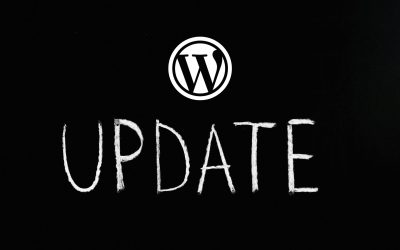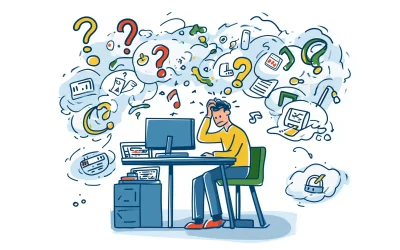WordPress security is a critical concern for all website owners. With thousands of websites being blacklisted every day for malware and phishing, it’s essential to implement the best practices for securing your WordPress blog. This guide will provide you with actionable steps and insights into WordPress security, including the importance of keeping WordPress updated, using strong passwords, and the role of web hosting in protecting your site.
Key Takeaways
- Choose a web hosting provider that offers advanced security features for WordPress websites.
- Regularly update WordPress, plugins, and themes to protect against vulnerabilities.
- Use strong passwords and implement additional security measures like two-factor authentication.
- Understand user roles and permissions to control access to your WordPress site.
- Consider managed WordPress hosting for enhanced security and automatic backups.
Why WordPress Security is Important
The security of your WordPress site is of utmost importance in order to protect your website from hackers and prevent malware attacks. Security breaches can lead to data theft, the distribution of harmful malware, and even ransomware attacks. Not only can these breaches cause significant damage to your website and reputation, but they can also result in legal and financial consequences for your business.
In addition to protecting your own information, it is essential to consider your visitors’ expectations. Internet users today are increasingly aware of the importance of online security, and they expect websites to provide a safe browsing experience. A secure website builds trust and credibility with your audience, increasing the likelihood of return visits and conversions. Furthermore, search engines like Google prioritize secure sites in their rankings, meaning that investing in WordPress security measures can also improve your website’s visibility and organic traffic.
Protect Your Website from Hackers and Malware
By implementing proper WordPress security measures, you can safeguard your website and protect it from potential threats. This includes regularly updating WordPress, plugins, and themes, as updates often include security patches that address vulnerabilities. It also involves using strong passwords for your admin accounts, limiting login attempts, and enabling two-factor authentication to prevent unauthorized access.
Another key aspect of WordPress security is choosing a reliable web hosting provider. A secure hosting environment ensures that your website is hosted on servers that are protected against common threats and regularly updated with the latest security measures. Managed WordPress hosting, in particular, offers enhanced security features such as automatic backups, regular software updates, and advanced security configurations, providing an additional layer of protection for your site.
| Benefits of WordPress Security | Measures to Protect Your Website |
| 1. Protection against data theft and malware distribution | 1. Regularly update WordPress, plugins, and themes |
| 2. Enhanced trust and credibility with your audience | 2. Use strong passwords and limit login attempts |
| 3. Improved search engine visibility and organic traffic | 3. Enable two-factor authentication |
| 4. Legal and financial consequences | 4. Choose a reliable web hosting provider |
Keeping WordPress Updated
Regularly updating your WordPress installation, plugins, and themes is essential for maintaining a secure website. Updates often include security patches that address vulnerabilities and protect against potential threats. By keeping your WordPress site up to date, you minimize the risk of hacking attempts and ensure the stability of your site.
Updating WordPress is a straightforward process. Once a new version is released, you’ll receive a notification in your WordPress dashboard. Simply click on the update button to initiate the update. It’s important to back up your site before performing any updates to avoid any potential data loss. Additionally, it’s crucial to update your plugins and themes as well. Outdated versions can expose your site to security risks.
To update your plugins, go to the “Plugins” section in your WordPress dashboard. If an update is available, you’ll see a notification next to the plugin name. Click on the “Update Now” button to update the plugin. Similarly, for themes, navigate to the “Appearance” section and click on the “Themes” tab. If an update is available for your active theme, you’ll see an update notification. Click on the “Update Now” button to update the theme.
| Key Actions | Purpose |
| Regularly update WordPress, plugins, and themes | Address vulnerabilities and protect against potential threats |
| Back up your site before performing updates | Minimize the risk of data loss |
| Update plugins in the “Plugins” section | Ensure plugins are up to date |
| Update themes in the “Appearance” section | Keep your active theme secure |
By prioritizing regular updates, you can strengthen the security of your WordPress site and stay protected against emerging threats.
Passwords and User Permissions
Creating strong passwords and managing user permissions are vital aspects of WordPress security. By implementing best practices in password management and user access control, you can significantly enhance the security of your WordPress site and protect it from unauthorized access.
Strong Passwords
Using strong, unique passwords is essential to prevent unauthorized access to your WordPress site. Avoid using commonly used passwords or personal information that can be easily guessed. Instead, create passwords with a combination of uppercase and lowercase letters, numbers, and special characters. Regularly updating passwords is also recommended to mitigate any potential risks.
Limit Login Attempts
Limiting the number of login attempts can deter hackers from using brute force attacks to gain access to your WordPress site. By setting a limit on the number of failed login attempts, you can effectively block repeated login attempts, making it more difficult for unauthorized users to guess or crack your password.
Two-Factor Authentication
Implementing two-factor authentication adds an extra layer of security to your WordPress login process. This authentication method requires users to provide an additional verification code, usually sent to their mobile device, after entering their password. By enabling two-factor authentication, you can ensure that only authorized individuals with both the password and the verification code can access your WordPress site.
Password Protect wp-admin and Login Pages
Another important security measure is to password protect the wp-admin directory and the login pages of your WordPress site. This additional layer of protection prevents unauthorized access to sensitive areas of your site, such as the WordPress admin panel. Password protecting these pages adds an extra barrier for potential hackers, making it more challenging for them to gain control of your WordPress site.
Table: User Permissions
| User Role | Capabilities |
| Administrator | Full access to all WordPress settings and functionality |
| Editor | Can create, edit, publish, and delete all posts and pages |
| Author | Can create, edit, publish, and delete their own posts |
| Contributor | Can write and edit their own drafts, but cannot publish them |
| Subscriber | Can only manage their profile and leave comments on your site |
Understanding user roles and permissions is crucial for controlling access to your WordPress site. By assigning appropriate user roles to individuals, you can limit their capabilities and ensure that only trusted users have access to critical administrative functions. Regularly review and update user permissions to maintain the security of your WordPress site.
The Role of Web Hosting
When it comes to securing your WordPress site, the choice of web hosting provider is crucial. A reliable and secure web hosting provider plays a significant role in protecting your website from potential threats. With web hosting security being a top priority, it’s essential to choose a provider that offers advanced security features and robust infrastructure.
Managed WordPress hosting is an excellent option for ensuring the security of your WordPress site. By opting for managed hosting, you can benefit from automatic backups, regular updates, and enhanced security configurations. These features can significantly reduce the risk of security breaches and provide peace of mind.
The Benefits of Managed WordPress Hosting
Managed WordPress hosting offers several advantages when it comes to website security:
- Enhanced Security Measures: Managed hosting providers typically employ advanced security measures, such as firewalls, malware scanning, and real-time threat detection, to protect your website.
- Regular Updates: Managed hosting ensures that your WordPress installation, plugins, and themes are regularly updated with the latest security patches, reducing the risk of vulnerabilities.
- Dedicated Support: With managed hosting, you have access to a team of experts who can assist you with any security-related concerns or issues that may arise.
- Performance Optimization: Managed hosting often includes optimization features, such as caching and content delivery networks (CDNs), which can improve website performance and security.
By choosing a secure web hosting provider, such as a reputable managed WordPress hosting service, you can enhance the security of your WordPress site and protect it from potential threats.
Conclusion
Securing your WordPress blog with hosting is of utmost importance to protect your website from hackers and malware. By implementing the best practices outlined in this guide, you can significantly enhance the security of your WordPress site and ensure a safe online presence.
Remember that WordPress security is an ongoing process, and it requires active vigilance. Keep your WordPress installation, plugins, and themes up to date to stay protected against potential threats. Additionally, use strong and unique passwords for your admin, FTP, and hosting accounts. Consider implementing measures like limiting login attempts and enabling two-factor authentication to further enhance your site’s security.
Choosing a secure web hosting provider is also crucial. Opt for a reputable company that takes proactive measures to protect their servers and offers advanced security configurations. Managed WordPress hosting can provide automatic backups, regular updates, and enhanced security features to ensure the safety of your website. Prioritize the security of your WordPress site by selecting a web hosting provider with a proven track record in WordPress security.
By following these WordPress security best practices and investing in secure WordPress hosting, you can protect your website from hackers, safeguard your data, and maintain the trust of your visitors. Don’t compromise on the importance of WordPress security – prioritize the security of your WordPress blog today for a secure and successful online presence.
Create an image featuring a shield or barrier with a WordPress logo inside, representing the idea of secure hosting.
Key Takeaways
- Choose a web hosting provider that offers advanced security features for WordPress websites.
- Regularly update WordPress, plugins, and themes to protect against vulnerabilities.
- Use strong passwords and implement additional security measures like two-factor authentication.
- Understand user roles and permissions to control access to your WordPress site.
- Consider managed WordPress hosting for enhanced security and automatic backups.
Why WordPress Security is Important
The security of your WordPress site is of utmost importance in order to protect your website from hackers and prevent malware attacks. Security breaches can lead to data theft, the distribution of harmful malware, and even ransomware attacks. Not only can these breaches cause significant damage to your website and reputation, but they can also result in legal and financial consequences for your business.
In addition to protecting your own information, it is essential to consider your visitors’ expectations. Internet users today are increasingly aware of the importance of online security, and they expect websites to provide a safe browsing experience. A secure website builds trust and credibility with your audience, increasing the likelihood of return visits and conversions. Furthermore, search engines like Google prioritize secure sites in their rankings, meaning that investing in WordPress security measures can also improve your website’s visibility and organic traffic.
Protect Your Website from Hackers and Malware
By implementing proper WordPress security measures, you can safeguard your website and protect it from potential threats. This includes regularly updating WordPress, plugins, and themes, as updates often include security patches that address vulnerabilities. It also involves using strong passwords for your admin accounts, limiting login attempts, and enabling two-factor authentication to prevent unauthorized access.
Another key aspect of WordPress security is choosing a reliable web hosting provider. A secure hosting environment ensures that your website is hosted on servers that are protected against common threats and regularly updated with the latest security measures. Managed WordPress hosting, in particular, offers enhanced security features such as automatic backups, regular software updates, and advanced security configurations, providing an additional layer of protection for your site.
| Benefits of WordPress Security | Measures to Protect Your Website |
| 1. Protection against data theft and malware distribution | 1. Regularly update WordPress, plugins, and themes |
| 2. Enhanced trust and credibility with your audience | 2. Use strong passwords and limit login attempts |
| 3. Improved search engine visibility and organic traffic | 3. Enable two-factor authentication |
| 4. Legal and financial consequences | 4. Choose a reliable web hosting provider |
Keeping WordPress Updated
Regularly updating your WordPress installation, plugins, and themes is essential for maintaining a secure website. Updates often include security patches that address vulnerabilities and protect against potential threats. By keeping your WordPress site up to date, you minimize the risk of hacking attempts and ensure the stability of your site.
Updating WordPress is a straightforward process. Once a new version is released, you’ll receive a notification in your WordPress dashboard. Simply click on the update button to initiate the update. It’s important to back up your site before performing any updates to avoid any potential data loss. Additionally, it’s crucial to update your plugins and themes as well. Outdated versions can expose your site to security risks.
To update your plugins, go to the “Plugins” section in your WordPress dashboard. If an update is available, you’ll see a notification next to the plugin name. Click on the “Update Now” button to update the plugin. Similarly, for themes, navigate to the “Appearance” section and click on the “Themes” tab. If an update is available for your active theme, you’ll see an update notification. Click on the “Update Now” button to update the theme.
| Key Actions | Purpose |
| Regularly update WordPress, plugins, and themes | Address vulnerabilities and protect against potential threats |
| Back up your site before performing updates | Minimize the risk of data loss |
| Update plugins in the “Plugins” section | Ensure plugins are up to date |
| Update themes in the “Appearance” section | Keep your active theme secure |
By prioritizing regular updates, you can strengthen the security of your WordPress site and stay protected against emerging threats.
Passwords and User Permissions
Creating strong passwords and managing user permissions are vital aspects of WordPress security. By implementing best practices in password management and user access control, you can significantly enhance the security of your WordPress site and protect it from unauthorized access.
Strong Passwords
Using strong, unique passwords is essential to prevent unauthorized access to your WordPress site. Avoid using commonly used passwords or personal information that can be easily guessed. Instead, create passwords with a combination of uppercase and lowercase letters, numbers, and special characters. Regularly updating passwords is also recommended to mitigate any potential risks.
Limit Login Attempts
Limiting the number of login attempts can deter hackers from using brute force attacks to gain access to your WordPress site. By setting a limit on the number of failed login attempts, you can effectively block repeated login attempts, making it more difficult for unauthorized users to guess or crack your password.
Two-Factor Authentication
Implementing two-factor authentication adds an extra layer of security to your WordPress login process. This authentication method requires users to provide an additional verification code, usually sent to their mobile device, after entering their password. By enabling two-factor authentication, you can ensure that only authorized individuals with both the password and the verification code can access your WordPress site.
Password Protect wp-admin and Login Pages
Another important security measure is to password protect the wp-admin directory and the login pages of your WordPress site. This additional layer of protection prevents unauthorized access to sensitive areas of your site, such as the WordPress admin panel. Password protecting these pages adds an extra barrier for potential hackers, making it more challenging for them to gain control of your WordPress site.
Table: User Permissions
| User Role | Capabilities |
| Administrator | Full access to all WordPress settings and functionality |
| Editor | Can create, edit, publish, and delete all posts and pages |
| Author | Can create, edit, publish, and delete their own posts |
| Contributor | Can write and edit their own drafts, but cannot publish them |
| Subscriber | Can only manage their profile and leave comments on your site |
Understanding user roles and permissions is crucial for controlling access to your WordPress site. By assigning appropriate user roles to individuals, you can limit their capabilities and ensure that only trusted users have access to critical administrative functions. Regularly review and update user permissions to maintain the security of your WordPress site.
The Role of Web Hosting
When it comes to securing your WordPress site, the choice of web hosting provider is crucial. A reliable and secure web hosting provider plays a significant role in protecting your website from potential threats. With web hosting security being a top priority, it’s essential to choose a provider that offers advanced security features and robust infrastructure.
Managed WordPress hosting is an excellent option for ensuring the security of your WordPress site. By opting for managed hosting, you can benefit from automatic backups, regular updates, and enhanced security configurations. These features can significantly reduce the risk of security breaches and provide peace of mind.
The Benefits of Managed WordPress Hosting
Managed WordPress hosting offers several advantages when it comes to website security:
- Enhanced Security Measures: Managed hosting providers typically employ advanced security measures, such as firewalls, malware scanning, and real-time threat detection, to protect your website.
- Regular Updates: Managed hosting ensures that your WordPress installation, plugins, and themes are regularly updated with the latest security patches, reducing the risk of vulnerabilities.
- Dedicated Support: With managed hosting, you have access to a team of experts who can assist you with any security-related concerns or issues that may arise.
- Performance Optimization: Managed hosting often includes optimization features, such as caching and content delivery networks (CDNs), which can improve website performance and security.
By choosing a secure web hosting provider, such as a reputable managed WordPress hosting service, you can enhance the security of your WordPress site and protect it from potential threats.
Conclusion
Securing your WordPress blog with hosting is of utmost importance to protect your website from hackers and malware. By implementing the best practices outlined in this guide, you can significantly enhance the security of your WordPress site and ensure a safe online presence.
Remember that WordPress security is an ongoing process, and it requires active vigilance. Keep your WordPress installation, plugins, and themes up to date to stay protected against potential threats. Additionally, use strong and unique passwords for your admin, FTP, and hosting accounts. Consider implementing measures like limiting login attempts and enabling two-factor authentication to further enhance your site’s security.
Choosing a secure web hosting provider is also crucial. Opt for a reputable company that takes proactive measures to protect their servers and offers advanced security configurations. Managed WordPress hosting can provide automatic backups, regular updates, and enhanced security features to ensure the safety of your website. Prioritize the security of your WordPress site by selecting a web hosting provider with a proven track record in WordPress security.
By following these WordPress security best practices and investing in secure WordPress hosting, you can protect your website from hackers, safeguard your data, and maintain the trust of your visitors. Don’t compromise on the importance of WordPress security – prioritize the security of your WordPress blog today for a secure and successful online presence.







